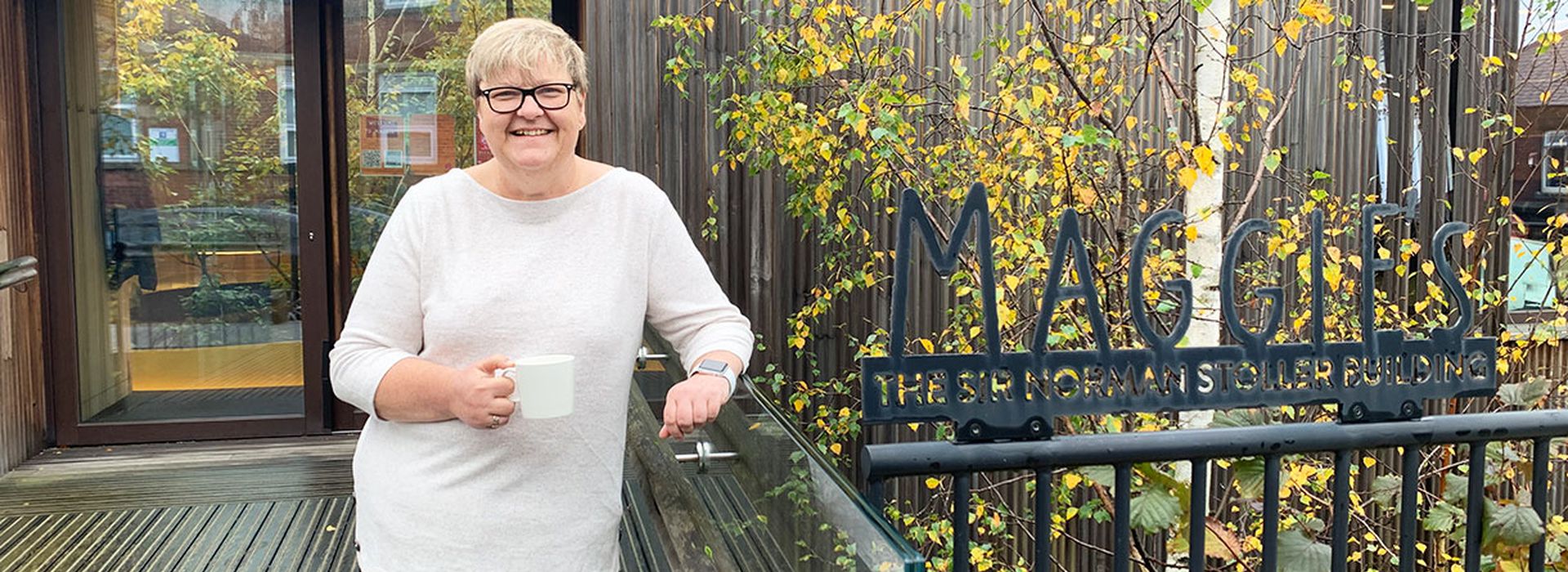Tuesday 30 April 2024

As this Bowel Cancer Awareness Month draws to a close, we share advice from one of our experts and talk about how Maggie's can help if you are concerned about bowel cancer.
Trish, from Maggie’s Oldham, has twenty years of experience as a colorectal specialist nurse.
Here, she shares her advice for anyone worried about bowel cancer symptoms, and explains how Maggie’s can help.
Bowel Cancer Awareness Month is a campaign that takes place every April to raise awareness of signs and symptoms, available screenings, and what to do if you are worried you have bowel cancer.
Dame Deborah James shone a spotlight on bowel cancer with her 'check your poo' campaign. Her legacy continues, and millions of pounds have been raised for cancer charities in her name.
In 2023, BBC Radio 1 DJ Adele Roberts set the world record for the fastest marathon run with a stoma bag, just 12 months after finishing chemotherapy for stage 2 bowel cancer.
At Maggie’s, we are seeing more and more people come into our centres for cancer support. We’re here to support you and your family at any point.
Cancer is when cells in the body start to multiply in an uncontrolled way.
For bowel cancer, this happens in the large bowel, which is made up of the colon and rectum.
Depending on where the cancer starts, it can also be known as colon, rectal, or colorectal cancer.
It is one of the most common types of cancer diagnosed in the UK.
Nearly 43,000 people are diagnosed with bowel cancer every year in the UK, according to Bowel Cancer UK.
If you have symptoms, don’t be embarrassed and don’t ignore them. Remember, doctors are used to seeing lots of issues related to bowels.
It’s really important to get any signs or symptoms checked out, especially if the symptoms last for a while or if you have ruled other things out.
Most of the time, these symptoms won’t be cancer – it could be so many things like haemorrhoids, irritable bowel, or you may have just eaten something that doesn’t agree with you.
But if your symptoms are persistent, you should contact your GP or the NHS by calling 111.
If it’s found early, bowel cancer can be very treatable.
You might want to keep a symptoms diary to help you describe them to your doctor and to make the most out of a GP appointment, as you probably only have 10 minutes with them, and you might forget things.
It helps them to know when the symptoms began, and to rule other causes out.
We're here to support you through the emotional and practical challenges that cancer can bring.
You can come and see us at your nearest Maggie’s centre, call us on 0300 123 180 or email us at enquiries@maggies.org
To find your nearest Maggie's centre, enter your postcode or town below.
Stay up to date with our news and fundraising by signing up for our newsletter.
Sign up